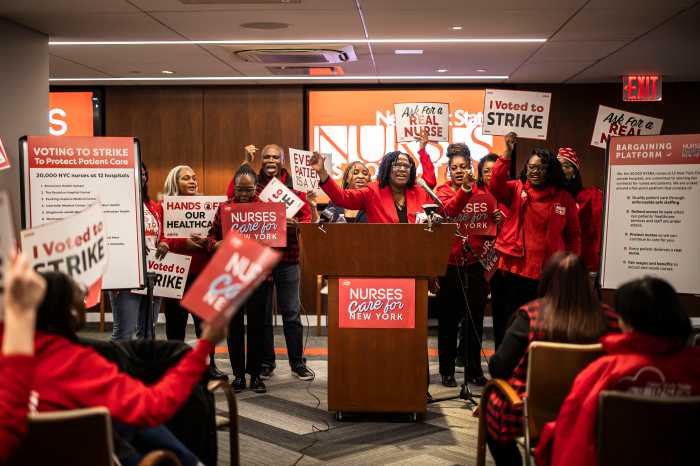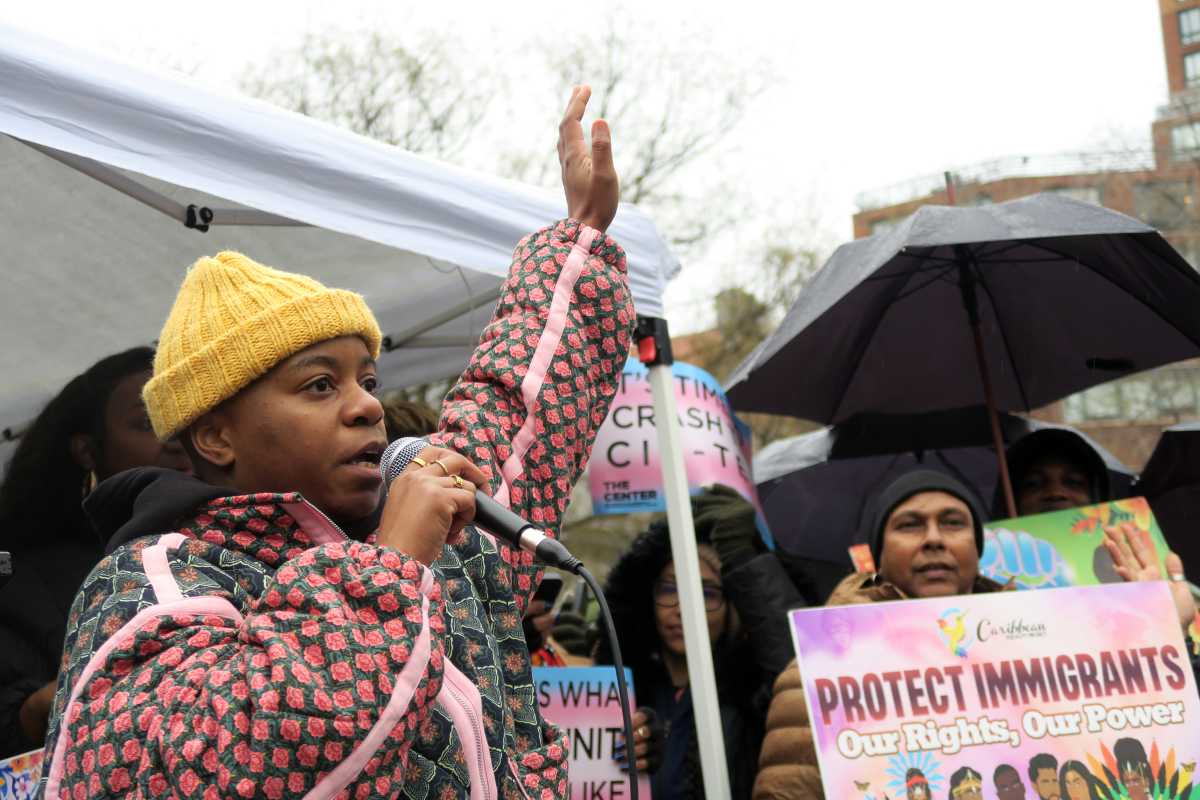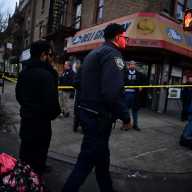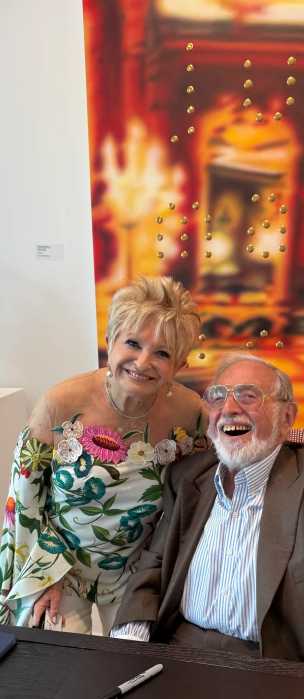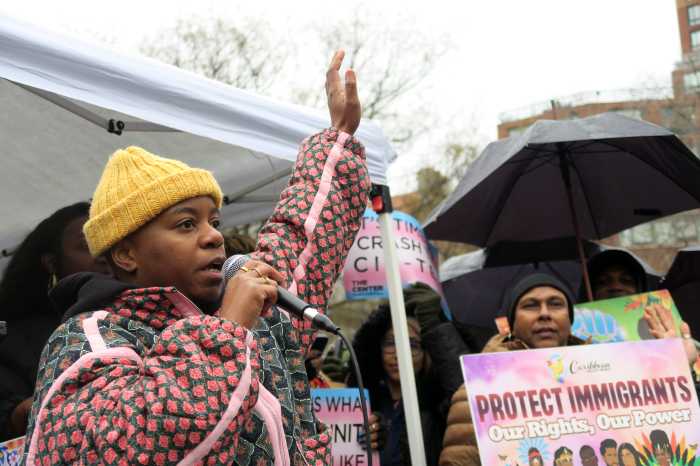
After 45 food service workers at The New School received a notice that they were going to be laid off, hundreds of students took over the university cafeteria.
A week later, they are still there.
An announcement made by The New School administration to replace cafeteria workers with non-union employees sparked anger within the school community. In response, cafeteria workers affiliated with the Unite Here! Local 100 union asked students to rally for them in a meeting on April 27, after which a full-fledged occupation of the cafeteria by members of the Communist Student Group began.
The New School had decided to end its contract with Chartwells, a multinational food-service company that employed the workers. In a letter obtained by amNewYork, the university said it had decided to self-operate its food services, a move Local 100 secretary-treasurer Jose Maldonado said was “extremely rare.” The university would be willing to give the workers a chance to re-apply for their jobs on “competitive terms,” the letter adds.

After a week of negotiations, a joint announcement released to the student body Monday evening detailed that the union and The New School administration have reached an agreement to extend the current contract with Chartwells, in order to continue providing the workers benefits while both parties negotiate a new contract.
Treating the development with heavy cynicism, occupation organizers joined the Student Employees at The New School union members, or SENS-UAW, as they began their first day of picketing outside The New School Tuesday. The graduate student worker union is alleging that the university has continuously delayed their right to unionize and been hesitant of bargaining with them as a collective, according to a statement on their website.
“We are still here to continue to fight,” Victoria Capraro, third-year student and Communist Student Group member, said. They do not plan to end the occupation until all the workers have contracts, she said.
Forty people have consistently been inside the occupied space and organizers have added another sleeping area for more students to join, Capraro added.
The students initially decided to take matters into their own hands after a petition circulated by the union challenging the administration’s decision did not receive a response from the administration. Communist Student Group members then took up residence in the cafeteria located at 63 Fifth Ave., and demanded every cafeteria worker’s job be saved. The group also asked for higher wages for the workers and better or equal benefits than what they were receiving under Chartwell’s contract.

On May 1, International Workers’ Day, students flooded the cafeteria at 11:30 a.m. At least 50 of them slept there overnight throughout the week, according to Capraro.
“We, the students, we see [the cafeteria workers] every single day. A lot of them consider themselves mothers to us,” she said. “It’s the cafeteria workers who are asking me if I’m going to class; cafeteria workers are asking me how my day is going.”
Soon after the occupation began, workers were instructed to lock the pantry. For several days, the students pooled their money together and made a “self-sufficient” cafeteria, Capraro said. Approaching finals, several professors have come into the occupied space and taught classes, she added.
The cafeteria looked like a Soviet-style campaign office on May 3, with signs reading “Socialism is the future” and “Protest Organize Occupy Walk Out Resist Strike Shut it Down” crowding the walls and blocking school surveillance cameras. Students nested with tarps, sleeping bags and couches dragged in from the faculty rooms. A water station read, “The revolution will not be providing sparkling water. Thank you for understanding.”
About a day and a half into the sit-in, The New School president David Van Zandt went into the occupied space and verbally promised to rehire all of the workers, according to Capraro. In an email sent shortly after, the administration vowed to offer employment to all of the workers, with “benefits equal to or better” than what they were currently receiving.
Abad DeGraffe, who has worked at the cafeteria for almost two years, said that the administration’s efforts have left him feeling scared and unappreciated.
“This was supposed to be the last chapter of my life,” DeGraffe said. “I came here to retire. Not to hope that one day I’m going to get fired or laid off.”
The New School students have no intention of leaving the cafeteria.
“We are not restricted by any regulations,” occupation organizer and one of the Communist Student Group’s founding members, Robert Griswold, said. “We are communists and we rely on our own forces and build revolutionary worker power.”




